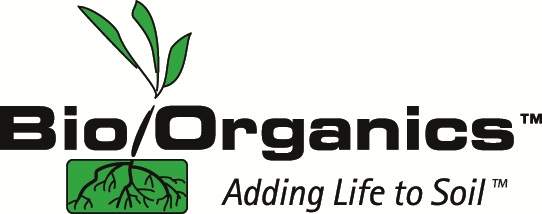The process of growing plants requires the grower to make a choice, either to use chemistry or biology as a starting orientation. Either approach can "work" if done properly.
A grower can put a seed or transplant in the ground, apply petroleum-based NPK fertilizer, and plants will perform. This has been the standard approach of farmers since the 1950's, and home gardeners have largely followed their example, encouraged by heavy advertising campaigns for "miraculous" plant foods. This direct-feeding is simple and has been relatively inexpensive. Living organisms in the soil are generally ignored when using this method.
The biological approach is more closely linked to organic techniques that had been used by farmers for centuries, when the recycling of manures was usually the only input available. Of course, the early farmers had no idea that the microbial life in their soils was generating much of the nitrogen and other nutrients that plants required, or even that microscopic life existed. Soil scientists now know the value of beneficial fungi and bacteria, and realize that many plants have evolved a dependence on root-companion microbes for both nutrients and moisture uptake.
A researcher, Dr. M. Habte, Department of Agronomy & Soil Science at the University of Hawaii, was quoted, "Global interest in the fungi has now reached a point whereby any discussion of agricultural biotechnology that does not include the role of vesicular-arbuscular mycorrhizal fungi is considered incomplete."
You could compare this chemistry-or-biology issue to decisions about a small pond with mosquito larvae. You could either spray a chemical on the water to kill the mosquitoes, or introduce mosquito-eating little fish. The chemical would be faster-acting, while the fish would do the job steadily over a longer period of time and be safer. Quicker simplicity versus a slower natural procedure. Take your choice.
After working with mycorrhizal fungi, beneficial bacteria, and volcanic minerals now for many years, I am no longer surprised by the super-productive yields that come from plants in low-input biologically active soils. Diseases such as black spot on roses are greatly reduced, tomatoes and melons require very little watering, and nematodes are kept in check - just to name a few advantages.
To be realistic, as long as "complete" NPK synthetic fertilizers can generate acceptable yields from inert soils, and are not restricted because of water contamination from runoffs and remain cost-effective, then biological methods must wait to return to most farms. However, more and more gardeners, fresh-market growers, landscapers, and container growers are finding that they can easily employ microbiology to produce healthier plants and healthier soil.
I really don't advocate completely ignoring chemistry, but in large part living organisms are responsible for making the chemistry of the soil right for plants. By ignoring and eliminating bio-life, growers create many of their own disease and insect headaches. Their plants become completely dependent on human input for nutrients and protection, when these services could be mostly provided by nature - without cost.
As previously said, a chemistry-only approach can (and obviously does) work. I simply question how many years it can work without "burning out" essential humic and trace elements in soil, how many years it can work without permanently contaminating underground drinking-water supplies, and how many years it can remain cost-effective with the increasingly high costs of petro-fertilizers. Of these, I regard the water contamination issue as the greatest concern, due to the difficulty of reversing decades of excess nitrates that are now gradually making their way down into aquifers. (I'd expect that there will be heavy lobbying to raise the permissible levels of nitrates in drinking waters, or industry-sponsored "studies" that will show plant fertilizer in water is actually good for you, but that's probably just my cynical side at work.)
I do understand the nature of modern farming, and realize that there's not nearly enough manure and rock dust to cover even one percent of our country's croplands, but that doesn't change the basic outlook that "conventional" chemical farming has major problems looming in the foreseeable future. A practical point is that smaller growers and home gardeners need not contribute to those problems.
Good sunshine and rain to you, my friends,
Don Chapman
President - BioOrganics, Inc.
